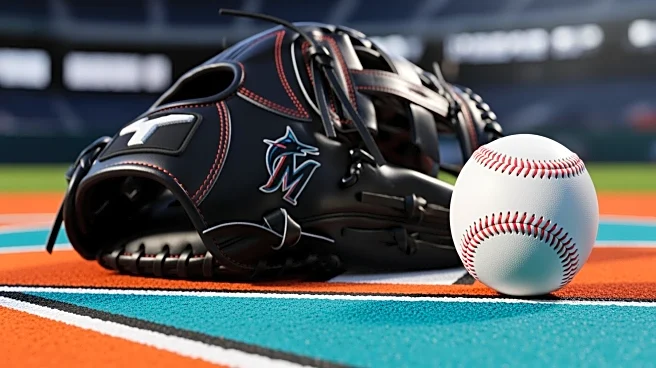What's Happening?
Kevin Whitaker, former U.S. ambassador to Colombia, has commented on the deteriorating relationship between the United States and Colombia. Once considered the strongest U.S. ally in Latin America, the alliance
is now strained due to harsh exchanges and diplomatic tensions. The relationship, historically focused on combating drug smuggling, is at its lowest point in 200 years. Whitaker highlighted the rollback of successes in drug control due to policies under Colombia's President Gustavo Petro, noting an increase in coca production. The situation is further complicated by public rhetoric from President Trump and Petro, with Trump labeling Petro a 'drug leader.' Whitaker emphasized the need for diplomatic solutions and the importance of maintaining the alliance to continue effective anti-narcotics efforts.
Why It's Important?
The strained U.S.-Colombia relationship has significant implications for regional stability and drug control efforts. The alliance has been pivotal in achieving real results in combating drug trafficking, and its deterioration could hinder these efforts. The increase in coca production under Petro's administration poses a challenge to U.S. anti-drug strategies. The public exchanges between Trump and Petro highlight the complexities of diplomatic relations and the potential for further escalation. The situation underscores the need for strategic engagement and collaboration to address shared challenges, such as drug trafficking and regional security.
What's Next?
Moving forward, diplomatic efforts will be crucial in mending the U.S.-Colombia relationship. Both countries may need to engage in dialogue to address mutual concerns and find common ground on drug control policies. The involvement of civil society and support from allies in both countries could play a role in advocating for a more constructive approach. The outcome of these efforts will likely influence U.S. foreign policy in Latin America and the broader geopolitical landscape in the region.









